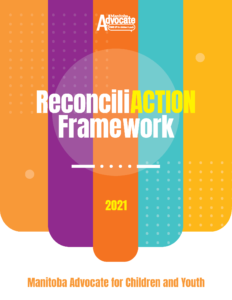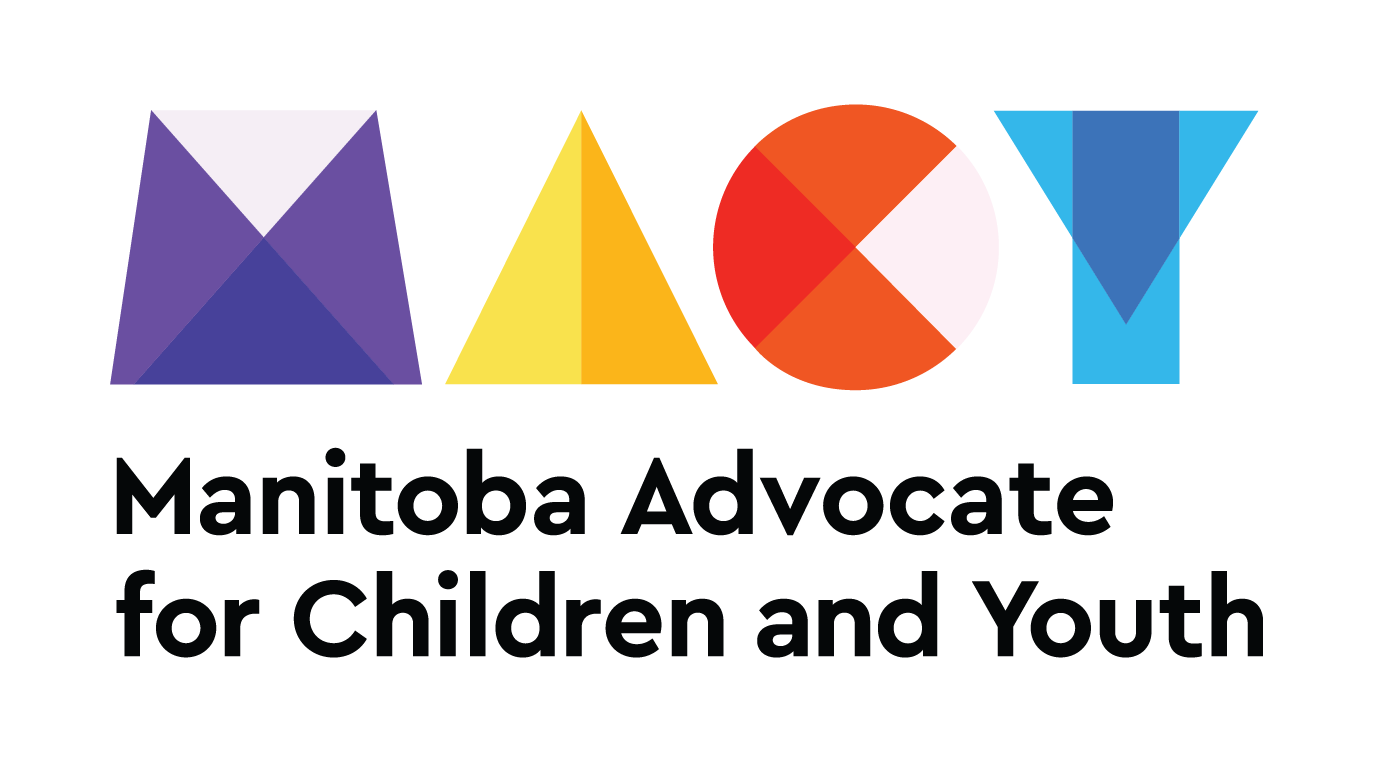Manitoba Advocate Releases ReconciliACTION Framework


September 29, 2021
Statement from the Manitoba Advocate for Children and Youth in honour of National Day for Truth and Reconciliation
On September 30, the National Day for Truth and Reconciliation offers an opportunity to remember and honour survivors of residential schools and the thousands of children who were forcibly taken from their parents and never returned home.
Between the 1870s and the late 1990s, children were made to feel inferior and were subjected to abuse at residential schools because of their ancestry, their language, and their culture. Children like Phyllis Webstad from the Sswecem’c Xgat’tem First Nation were stripped of their clothing in an intentional and systematic effort to inflict cultural genocide. In telling her story, Webstad helped create Orange Shirt Day, which we honour on September 30 as well.
More recently, the effects of the Sixties Scoop, the child welfare system, and ongoing inequities in social determinants of health continue to negatively impact Indigenous families. Discrimination affecting Indigenous Peoples in Canada is ongoing.
While we must face the uncomfortable truths at the root of Canada’s history, we must also work to acknowledge and address the harms and children’s rights abuses that are a shameful part of our present and past.
In Manitoba, the truth is First Nations, Metis, and Inuit young people continue to face discrimination in the community and, at times, when accessing public services. The office of the Manitoba Advocate for Children and Youth (MACY) is committed to amplifying the voices and experiences of Indigenous young people so that necessary systemic changes can be made and the provincial government is held accountable to the inherent rights of children, as laid out in the United Nations Convention on the Rights of the Child and the United Nations Declaration on the Rights of Indigenous Peoples.
I acknowledge that for an organization that is mandated through provincial legislation the process of decolonization requires understanding and undoing colonialism within our own offices. To this end, today we are releasing our office’s internal ReconciliACTION Framework, which includes a workplan. Led by the Indigenous Deputy Advocate and Knowledge Keeper at our office, the ReconciliACTION Framework is a guide we use in our office to advance meaningful reconciliation with Indigenous Peoples. It describes our approach and plan to advance reconciliation through our work.
We chose the term ReconciliACTION because it goes beyond the conceptual awareness that something has to change. It means collectively we need to put a plan into place through a set of actions that show a change in our belief systems, support for social justice where Indigenous rights are concerned, and an allyship that is unwavering.
The ReconciliACTION Framework is also intended to assist employees in understanding why and how reconciliation matters in their everyday work and support cultural change within the organization and beyond. Once released, we welcome all feedback on the framework, which was developed in collaboration with the Elders Council at MACY and is intended as a living document, subject to ongoing improvement.
I invite all Manitobans to join us in committing to a future where Indigenous young people and their families feel supported; where they are receiving equitable services and encouraged to learn and practice their culture. On September 30, our offices will be closed as we reflect on ways we can advance truth and reconciliation in our own lives.
Kinanáskomitin, Miigwetch, Maarsii, Merci, Thank you,
Ainsley Krone, MA PC-IIC, RSW
A/Manitoba Advocate for Children and Youth
***
Read the MACY ReconciliACTION Framework.
Provide feedback on the ReconciliACTION Framework via SurveyMonkey.
Watch a conversation at MACY about honouring Orange Shirt Day and the ReconciliACTION Framework.
Download the above statement from Acting Manitoba Advocate for Children and Youth Ainsley Krone.
